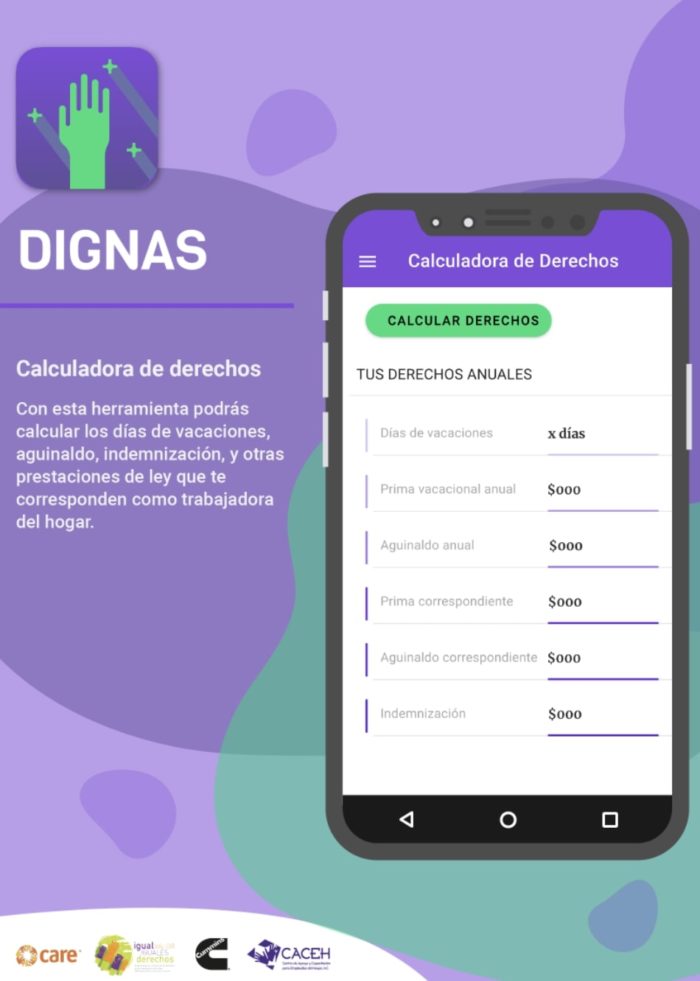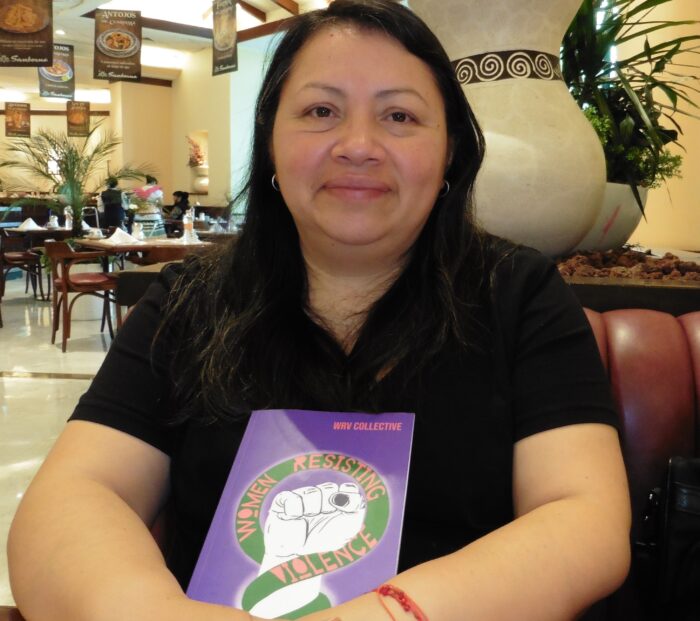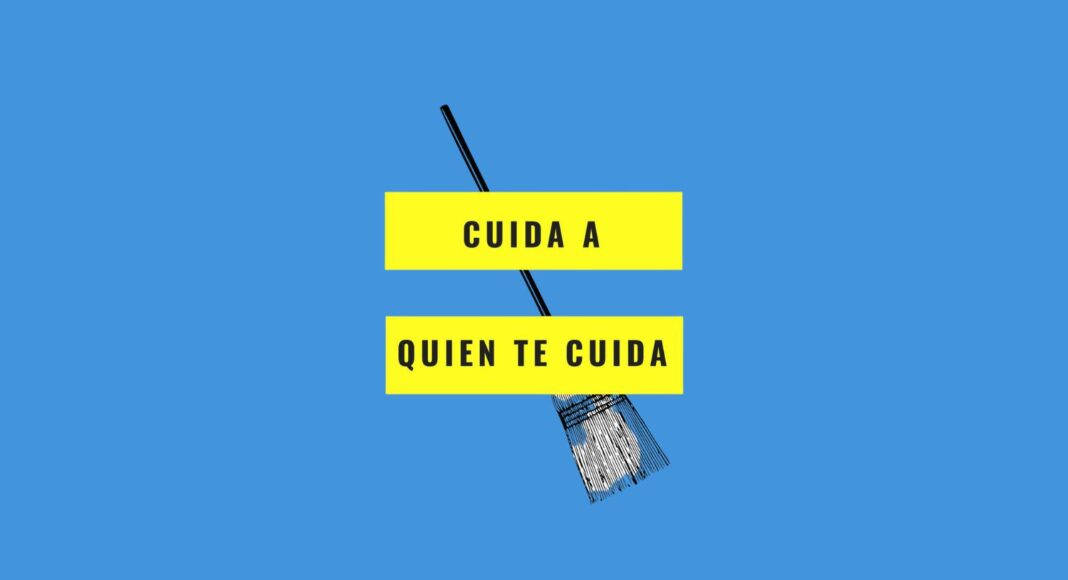Women Resisting Violence Collective author Marilyn Thomson reports from Mexico on the struggle of domestic workers organisations, catching up with leaders she interviewed for the 2022 Women Resisting Violence book.
On a recent visit to Mexico, I followed up on some of the activities of the domestic workers organisations that were highlighted in my chapter of Women Resisting Violence, Care for those who care: Domestic workers fight back against violence.
An innovation by CASEH – the Centre for professional and leadership training, run by Marcelina Bautista, was to set up a helpline for domestic workers to report and talk about violence in their workplace. In August 2022 they launched the ‘Violentometro‘ which lists all the different forms of violence that affect workers and urges them to report these, providing different ways to do so. See https://caceh.org.mx/2022/08/16/violentometro/
They are also currently developing a strategy to widely disseminate the use of their Dignas app, which was highlighted in the chapter, and are campaigning to encourage more domestic workers to sign up for the social security scheme. Social media is providing them with an important tool to reach workers, although not all have access to mobile phones, so it is also limited.

I also met up with Ana Laura Aquino who was one of the contributors to my chapter and she was delighted to have a copy of the book. Although she understands some English, she said would love to have a translation (we are looking into this*).
We talked about whether there had been changes to the working conditions of household workers since the government had reformed the Labour Code and introduced the pilot social security scheme. Ana Laura told me:
Although we now have reforms to the Ley Federal de Trabajo, these have not solved all the issues we face as domestic workers. Exploitation continues and we still need protection because there are no official systems in place to help us. The trade union of domestic workers does not represent all workers and only protects those who are its members. Although we are now covered by labour laws not all workers know about these rights, and we don’t have the tools to claim them.
Ana Laura Aquino
It isn’t easy to ask employers for labour rights. I am lucky because I have a good employer. I told her that I wanted the minimum wage, and she pays me that plus an annual bonus (Aguinaldo). She is a professor of philosophy, is interested in what I have to say, and asks about my organisation. Because I am living-in she hears me when I am talking to other activists. I was recently on a call with an alliance of women’s organisation in Central and South America exchanging information and she asked me what it was about. She doesn’t mind me having online meetings with colleagues in the evening but not all employers are like her.
But in the past year I have been focussing on finishing my secondary education. I study during my time off from work and have my exams coming up in May and June. So recently I haven’t had as much time for my organisation. We got our certification as a co-operative but the members don’t know how to explain to others what it is about and to bring in new members. Being a leader can be tough because everyone looks to me for direction, and organising other workers takes up a lot of time. So, it has fallen off a bit recently while I study for my exams.‘

Although many of the demands of domestic workers organisations are being heard and they are finding new ways to reach out to other workers, the need to continue raising awareness of their rights and to protect domestic workers continues.
*If you are a publisher or translator interested in translating Women Resisting Violence, please get in touch on wrv@lab.org.uk.
Main image: Cuida a quién te cuida campaign poster




